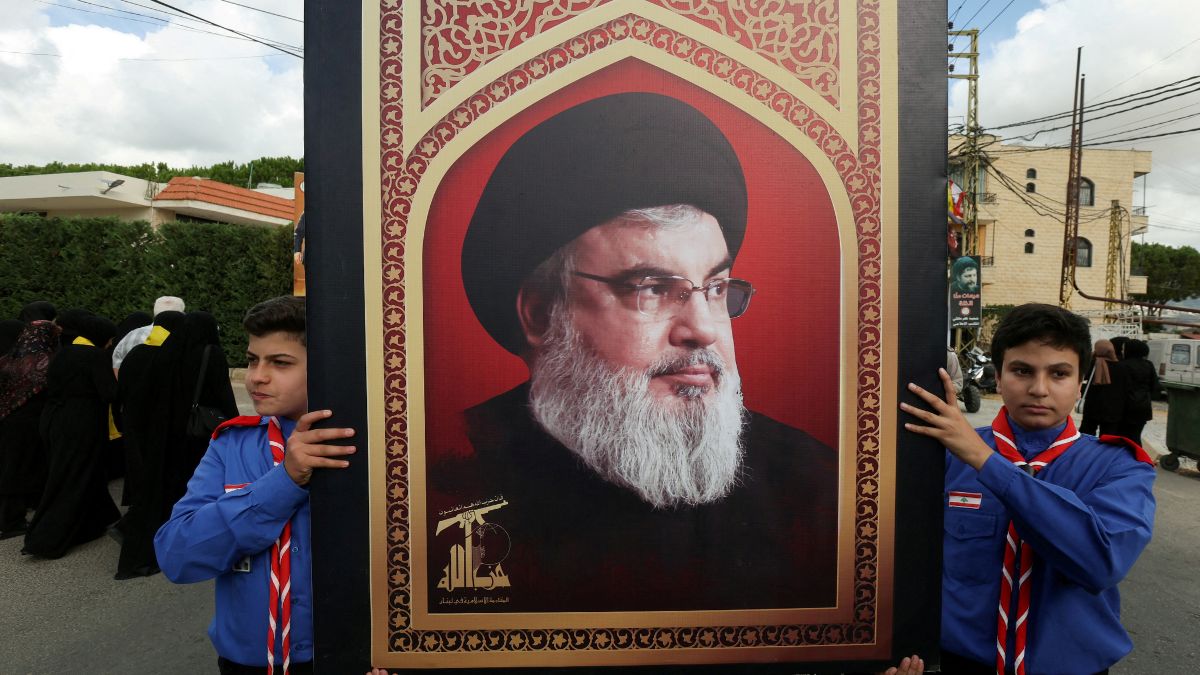Israel declared that its military has killed Hezbollah’s Secretary-General, Hassan Nasrallah, in a targeted airstrike. This claim was confirmed by Hezbollah a few hours later in a statement.
According to the Israeli military, the airstrike occurred on Friday at Hezbollah’s central command in Dahiyeh, south of Beirut. Israeli Chief of Staff, Herzi Halevi, revealed that this strike had been in preparation for a long time and marked one of the most significant blows against the Iran-backed militant group.
“This is not the end of our toolbox,” Halevi stated, suggesting that more actions are planned.
The Israel Defence Forces (IDF) confirmed the news with a one liner in a post on X, saying: “Hassan Nasrallah will no longer be able to terrorise the world.”
Hassan Nasrallah will no longer be able to terrorize the world.
— Israel Defense Forces (@IDF) September 28, 2024
The airstrike reportedly killed several top Hezbollah commanders, including Ali Karki, commander of Hezbollah’s Southern Front.
The Lebanese Health Ministry reported that six people were killed and 91 injured in the strike, which also destroyed six apartment buildings. Amid escalating violence, the Israeli military has mobilised additional reserve forces, sending three battalions across the country.
Smoke continued to rise from Beirut’s southern suburbs on Saturday as Hezbollah retaliated by launching dozens of projectiles into northern and central Israel, along with the Israel-occupied West Bank. Tensions remain at a peak, with 720 Lebanese civilians reported killed in airstrikes over the past week.
Who was Hassan Nasrallah?
Hassan Nasrallah, the figurehead of Hezbollah since 1992, had long been a prominent symbol of resistance against Israel. Under his leadership, Hezbollah evolved from a militia into a powerful political and military force in Lebanon, with substantial backing from Iran.
Nasrallah is credited with leading Hezbollah during the 2006 war with Israel and for expanding the group’s influence across the Middle East.
Conflicting reports initially suggested that he might have survived. A source close to the group had claimed on Friday that Nasrallah was still alive, and Iran’s Tasnim News Agency also had reported he was safe.
Nasrallah’s death marks a seismic shift not only for Hezbollah but also for Iran, whose Revolutionary Guards established the group in 1982. Nasrallah’s leadership had been a pillar of Iran’s influence in the region.
Nasrallah’s death could trigger a wider regional conflict, drawing in other Iranian proxies like Iraq’s Popular Mobilisation Forces or groups in Syria. Iran’s response is also a critical factor to watch.
Who will lead Hezbollah next?
As the news of Nasrallah’s death has been confirmed, attention immediately shifts to his likely successor. The name most frequently mentioned is Hashem Safieddine, a cousin of Nasrallah and head of Hezbollah’s executive council.
Safieddine has played a crucial role in Hezbollah’s political and financial operations and has long been viewed as Nasrallah’s heir apparent.
Safieddine, born in 1964, has deep ties to both Hezbollah and Iran. He is known for his connections to Iran’s ruling clerics, having spent years studying in Qom. His son, Rida, is married to Zainab Soleimani, the daughter of Qassem Soleimani, the former commander of Iran’s Quds Force.
Reuters quoted analysts, such as Philip Smyth, a specialist on Shiite militias, who noted that Safieddine’s familial ties and religious status as a descendant of the Prophet Muhammad make him a strong contender for leadership.
Despite Safieddine’s deep involvement in Hezbollah, he has maintained a relatively low profile until recent years. He has emerged more into the public eye, especially during funerals for Hezbollah fighters killed in Syria, a conflict in which Hezbollah has been heavily involved on behalf of the Assad regime.
The US government has designated Safieddine as a terrorist since 2017. The Kingdom of Saudi Arabia also imposed sanctions on him, freezing any assets he holds within the country. He is seen as a hardliner within Hezbollah, advocating for increased military aggression against Israel.
How will Nasrallah’s death affect the Hezbollah’s response?
With Nasrallah dead, Hezbollah’s response could have significant repercussions for the region. Hezbollah, alongside Hamas, forms part of the so-called “Axis of Resistance,” which includes several Iran-backed groups targeting Israel.
Since October 2023, Hezbollah has ramped up its rocket attacks on northern Israel, intensifying hostilities that began after Hamas launched a large-scale attack on Israel.
In June 2024, Hezbollah launched one of its largest attacks since 2006, firing 215 projectiles toward Israel after Israel killed a senior Hezbollah commander, Taleb Sami Abdullah.
Hezbollah has vowed to increase the frequency of its strikes in retaliation, a strategy likely to continue if Nasrallah’s death is confirmed. Hashem Safieddine, speaking at Abdullah’s funeral, warned Israel to “prepare to cry and wail” as Hezbollah escalates its attacks.
With Israeli forces continuing to carry out airstrikes across Lebanon, the situation remains volatile. As of Saturday, Israel had followed up Friday’s strike on Hezbollah’s command center with fresh attacks on the southern suburbs of Beirut and the Bekaa Valley.
With inputs from agencies


)

)
)
)
)
)
)
)
)



